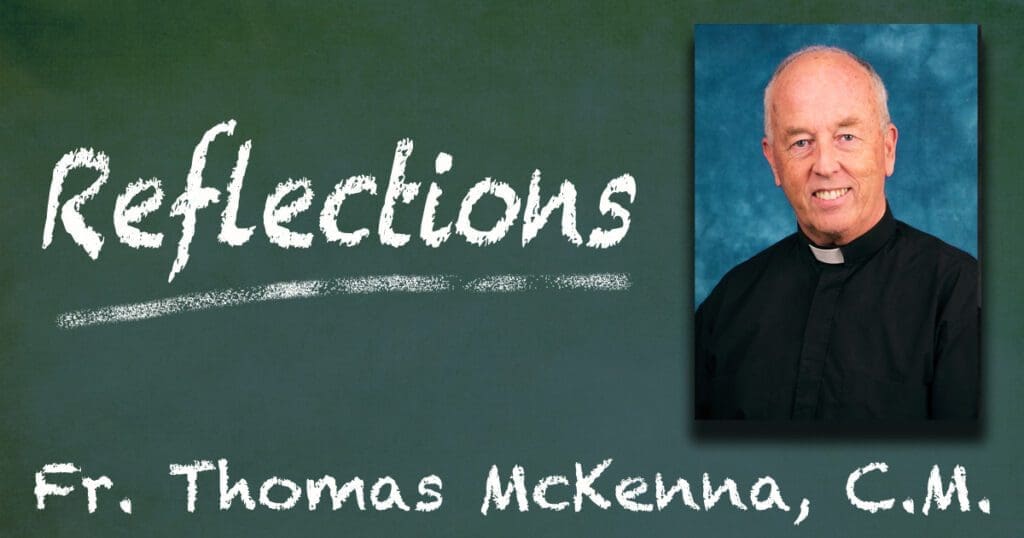Recently we celebrated the feast of the Sacred Heart of Jesus. I’m sure every one of us has seen one of those portraits of the Lord Jesus, standing tall but showing his heart, his Sacred heart — which we’d readily recognize as the symbol of his love, his great love for us.

This visual and proclamation of being loved might seem clear enough. But as we know from the experience of many, this message given is often enough a message not received. Very many people, if not most, have doubts about their own loveability, have hesitations about their inner value. They wonder, down deep, if they really are worthy and loved.
It’s to this very common self-doubt that both the devotion to the Sacred Heart, and the words of Jesus in Matthew’s 10th chapter are addressed.
The devotion to the Sacred Heart was originally a devotion to Jesus’ Sacred Wounds, that is to say the wound or gash in Jesus’ side given by the Roman soldier out of which flowed blood and water. The Saint connected with this devotion, Margaret Mary Alacoque, pictured herself there on the cross with Jesus, leaning her whole self up against his wound. Her ear against it, she testified that she could hear his heart. And it was from that heart that she could feel all his love coming– to her and to all of us.
That’s the striking visual behind the devotion– the love pouring out of Jesus’ heart. The image would heighten our ability to be convinced that we are loveable– and loved.
This graphic, leaning against the loving heart of the Lord Jesus, has many parallels all through the Scriptures, images that depict our preciousness in God’s sight.
One of the warmest is in chapter 10 of St. Matthew. It’s where Jesus, in searching for a scene to convey his Father’s love for us, looks up and notices the tiny sparrows flying through the air all around him. He declares that not even one of them falls to the ground without his Father’s knowing it, none of them is ever out of the loving gaze of his Father, God. Jesus adds that even the hairs of our heads are counted. And he finishes with the assurance that we are worth more than thousands of these precious little birds.
On first bounce, one might think that convincing people of their loveableness, worth, and goodness, is not all that difficult. But looking around at our society and noticing the amount of self-doubt and self-dislike in the air, you catch the size and depth of the challenge. In his living, dying and his rising again, Jesus keeps on insisting– and proclaiming– that each of us is loved, is precious in God’s eyes, is dear to his Father’s heart.
Perhaps nowhere is this more evident than when we gather for the Eucharist. This is the reenactment of Jesus’ giving over all he has in love for us. It’s the Lord Jesus holding back nothing, that he might proclaim, in this gift of his body and blood, that we are loved and precious in God’s sight.
The next time we come across that image of the Sacred Heart, that graphic of God’s own heart pouring out love for us, we should do what we can to receive that love, to take it in. The next time we doubt our own worth, or wonder about our loveableness, we can picture those sparrows and how much more each one of us is valued and cherished.
God is love itself. As Jesus’ life, death and new life shows us, we are the loved ones. We are God’s beloved.
Both St. Vincent and St. Louise prized this image of Jesus’ Sacred Heart and prayed often with it. In a note to one of her Sisters, Louise refers to power of such love. “If your heart has been as steadfast as you tell me, oh, then I love it with all mine and even more because, since it is the Love of God which produces such effects in it, it must be honored and cherished. I beg this holy love to fill it completely.” (Spiritual Writings, page 158).





Thanks, Tom,
A comforting reminder of pulsating heart & warmth of blood from a loving heart that “beats” out our cool over-thinking brain activity. Sometimes we are “too smart” for our own good with all our learning. Peasant faith of our forebears has a lot to be said for itself.
(Had lunch here in Ridgefield this week with Bob McGuire & Joan – he asked to be remembered to you).
Well Being for the summer.
Joe & Mary
Joe, “The Peasant faith of our forebears.” A phrase that opens many a door for all of us.
Thanks much. Be well,